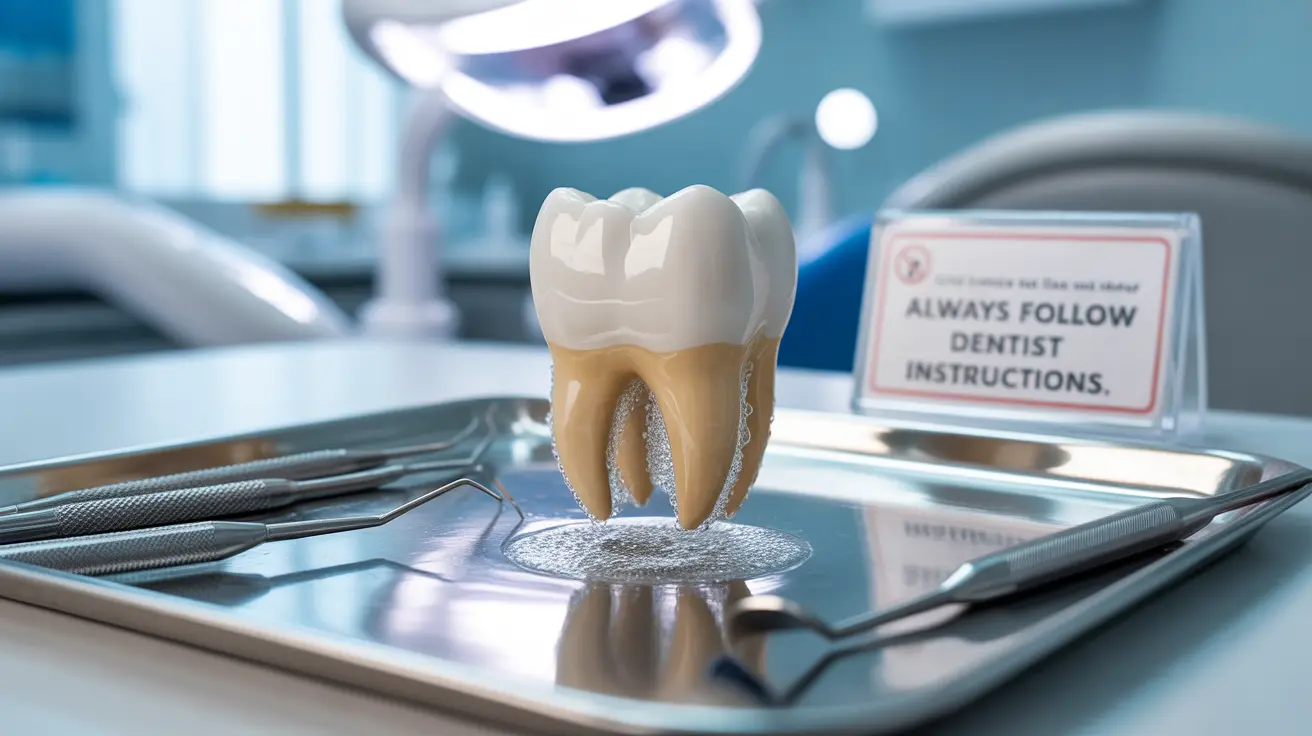The desire for a brighter, whiter smile has led many people to explore various teeth whitening methods, including hydrogen peroxide treatments. While this common household chemical can effectively whiten teeth, understanding its proper use, safety considerations, and potential risks is crucial before incorporating it into your dental care routine.
In this comprehensive guide, we'll explore the science behind hydrogen peroxide teeth whitening, examine safe usage guidelines, and discuss important precautions to protect your oral health.
How Hydrogen Peroxide Whitens Teeth
Hydrogen peroxide works as a bleaching agent through a process called oxidation. When it comes into contact with your teeth, it breaks down into water and oxygen molecules. These oxygen molecules penetrate the enamel, breaking down complex stain molecules into smaller pieces, which results in a lighter appearance of your teeth.
Safe Concentration Levels for Home Use
For at-home teeth whitening, dental professionals recommend using hydrogen peroxide solutions between 1% and 3% concentration. Higher concentrations can be dangerous and should only be administered by dental professionals in controlled settings. Over-the-counter whitening products typically contain these safer concentrations.
Potential Side Effects and Risks
While hydrogen peroxide can be effective for teeth whitening, it's important to be aware of potential side effects:
- Temporary tooth sensitivity
- Gum irritation and inflammation
- Uneven whitening results
- Changes in tooth enamel texture
- Burning sensation in soft tissues
Safe Application Methods
To minimize risks while using hydrogen peroxide for teeth whitening, follow these guidelines:
Proper Dilution
If using standard 3% hydrogen peroxide, consider diluting it with equal parts water for a gentler solution, especially if you have sensitive teeth or gums.
Application Technique
Use a soft toothbrush or cotton swab to apply the solution carefully, avoiding excessive contact with gums. Limit application time to no more than 2 minutes, and don't use it more than twice per week.
Protective Measures
Consider applying petroleum jelly to your gums before treatment to create a protective barrier. Always rinse thoroughly with water after application.
When to Avoid Hydrogen Peroxide
Some individuals should avoid using hydrogen peroxide for teeth whitening, including:
- People with severely sensitive teeth
- Those with damaged or worn enamel
- Individuals with untreated cavities
- Pregnant or nursing women
- Children under 16 years of age
Frequently Asked Questions
How does hydrogen peroxide whiten teeth and what concentration is safe for home use?
Hydrogen peroxide whitens teeth through oxidation, breaking down stain molecules within the enamel. For home use, concentrations between 1-3% are considered safe, while higher concentrations should only be used under professional supervision.
What are the common side effects of using hydrogen peroxide for teeth whitening?
Common side effects include temporary tooth sensitivity, gum irritation, uneven whitening results, and possible soft tissue irritation. These effects are usually mild and temporary when proper concentrations and application methods are used.
Can hydrogen peroxide teeth whitening cause permanent damage to tooth enamel or gums?
While proper use of hydrogen peroxide at recommended concentrations is generally safe, overuse or using too high concentrations can potentially damage tooth enamel and gum tissue. Following proper guidelines and limiting frequency of use helps prevent permanent damage.
How should I use hydrogen peroxide safely to avoid tooth sensitivity and gum irritation?
Use diluted solutions (1-3%), limit application time to 2 minutes, avoid contact with gums when possible, and don't use more than twice weekly. Consider using protective barriers like petroleum jelly on gums and stop use if irritation occurs.
When should I avoid using hydrogen peroxide for teeth whitening and consult a dentist instead?
Consult a dentist before using hydrogen peroxide if you have sensitive teeth, worn enamel, untreated cavities, or existing dental work. Professional evaluation is also recommended if you're pregnant, nursing, or under 16 years old.
While hydrogen peroxide can be an effective teeth whitening solution when used properly, always prioritize safety over quick results. When in doubt, consult with a dental professional for personalized advice and treatment options.




